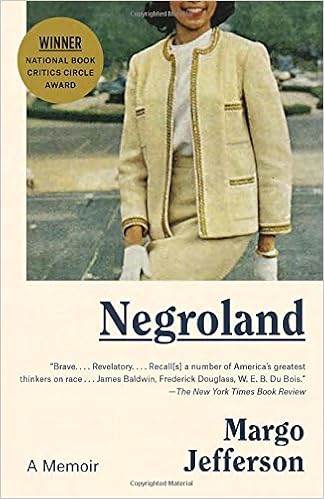 Here are two excerpts from a book I recently read, "Negroland: A Memoir," by Margo Jefferson:
Here are two excerpts from a book I recently read, "Negroland: A Memoir," by Margo Jefferson:
We were Bronzeville girls until I was three and Denise
six; then we moved to Park Manor. Bronzeville was the second biggest
Negro city in America, and our grandmother owned two buildings there. We
were living comfortably in one of them on a day in 1949 when history
records that “the attempt by two black families to move into two houses
in the South Side neighborhood of Park Manor produced a mob of 2000
whites chanting ‘We Want Fire, We Want Blood,’ while white policemen
watched in silence.”* What else would White Policemen do? They were
upholding twenty-five years of law and more than one hundred years of
custom. They were protecting the property of their fellow officers who
owned homes in Park Manor.
One evening several years later, when we have safely settled in Park Manor, a patrol car stops Daddy on his way home.
“What are you doing here?”
“I live here.”
“What’s in that black bag? Drugs?”
“I’m a doctor.”
Which the bag’s contents reveal he is. A pediatrician, luckily, not an anesthesiologist.
***


No comments:
Post a Comment